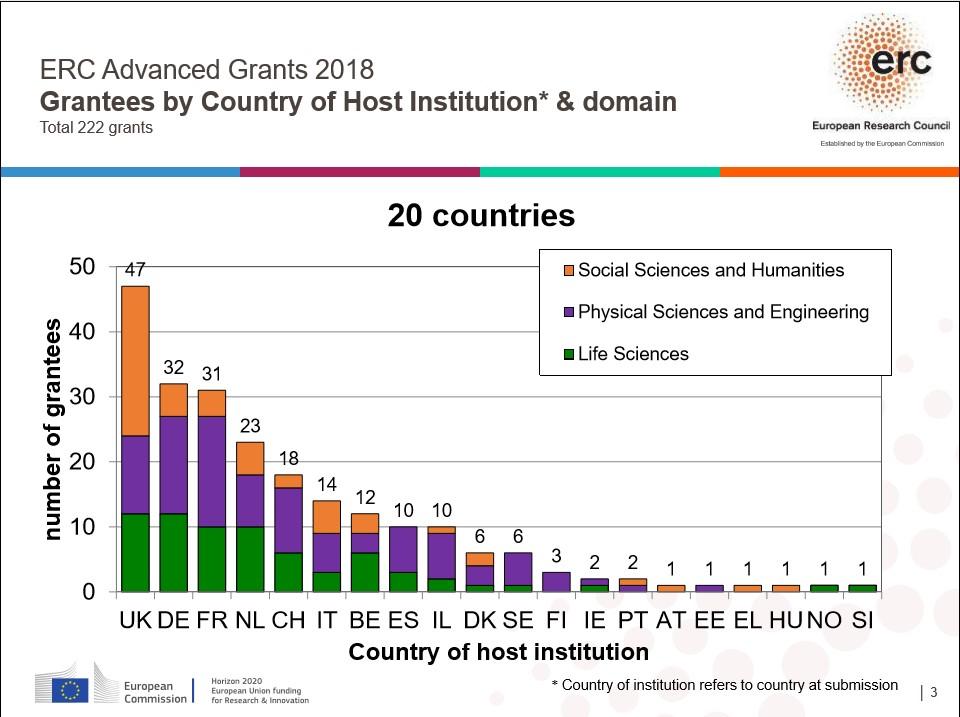No European research grant for the UU

The individual grants are worth up to 2.5 million euros, and are meant for ‘experienced’ scientists, who can use the money to fund five years of research. The European Research Council distributed a total of 540 million euros to 222 scientists.
United Kingdom
The United Kingdom is once again at the top of the list, with 47 grants, followed by Germany (32) and France (31). This year’s top 3 is the same as last year’s top 3. The Netherlands, though much smaller, is also doing quite well: we’re in fourth place, with 23 grants. In 2017, the Netherlands ranked sixth.
Scientists at Radboud University obtained the highest number of grants, six in total. Wageningen and Twente also perform quite well, with three grants each. Utrecht University, which in the past had usually done well with ERCs (in Dutch ed.), doesn’t get a single grant this year.
Dutch people abroad
The ranking that only looks at the nationality of the grant winners lists the Netherlands in third place; with 24 Dutch scientists, of whom five live abroad.
The ERC is comparable to Dutch research financer NWO, which provides Veni, Vidi, and Vici grants to scientists. The ERC calls its grants starting grants, consolidator grants, and advanced grants.
The ERC grants are very popular among scientists. Together, they sent in a total of 2052 applications. Only 10.8 percent of those were approved.
Advanced grants 2018 for Dutch research institutions:
| Advanced grants 2018 voor Nederlandse onderzoeksinstellingen | |
| Radboud Universiteit Nijmegen | 6 |
| Wageningen Universiteit | 3 |
| Universiteit Twente | 3 |
| Technische Universiteit Eindhoven | 2 |
| Vrije Universiteit Amsterdam en Medisch Centrum | 2 |
| Universiteit van Amsterdam | 2 |
| Erasmus Universiteit Rotterdam | 1 |
| Universiteit Leiden | 1 |
| Leids Universitair Medisch Centrum | 1 |
| VU Medisch Centrum | 1 |
| Nederlands Kankerinstituut | 1 |
| Totaal | 23 |